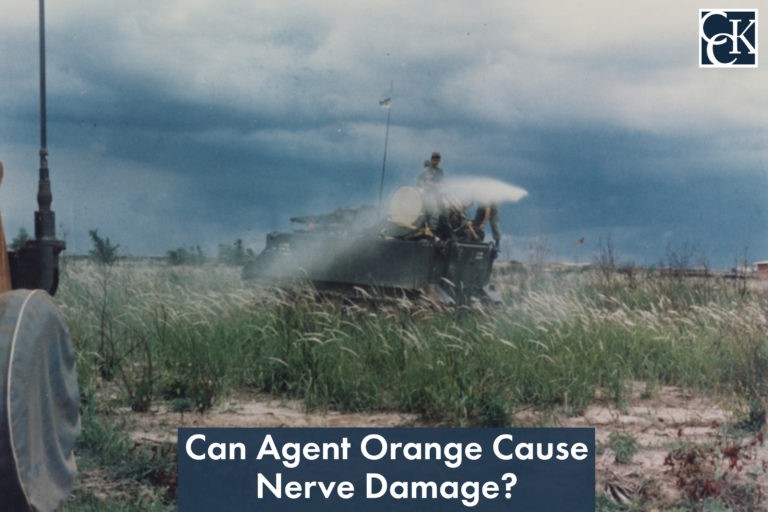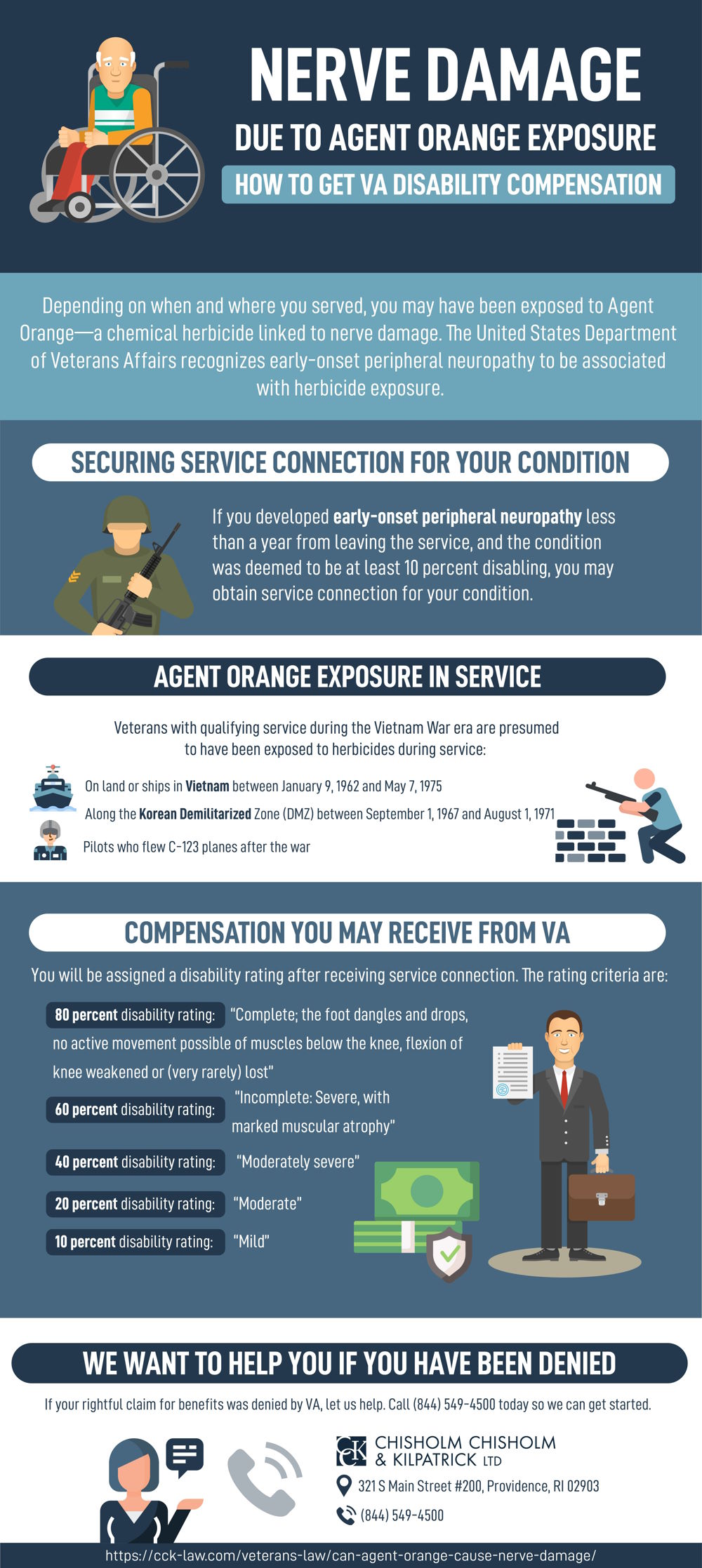Can Agent Orange Cause Nerve Damage?

CCK Law: Our Vital Role in Veterans Law
Exposure to Agent Orange may cause nerve damage. In fact, one of the conditions for which the U.S. Department of Veterans Affairs (VA) presumes service connection due to Agent Orange exposure is peripheral neuropathy.
Peripheral neuropathy results from damage to the peripheral nerves.
Getting VA Disability Compensation for Nerve Damage Due to Agent Orange Exposure

If you were exposed to Agent Orange during military service and later developed peripheral neuropathy, you may be entitled to VA disability benefits. As stated above, VA presumes service connection for peripheral neuropathy as due to Agent Orange exposure if you meet the following criteria:
- VA only presumes service connection for early-onset peripheral neuropathy. This means your peripheral neuropathy must have manifested within a year of separating from service; and
- Your peripheral neuropathy must have been at least 10 percent disabling within one year of discharge; and
If you do not qualify for presumptive service connection, you must meet the following criteria to receive VA disability benefits for peripheral neuropathy:
- You have a current diagnosis from a medical healthcare provider;
- You experienced an event, injury, or illness during your service; and
- There is a nexus between your in-service event and diagnosis.
Secondary Service Connection for Peripheral Neuropathy
Veterans can also be service-connected for peripheral neuropathy on a secondary basis. Secondary service connection occurs when a veteran’s already service-connected disability causes or aggravates a non-service-connected disability. Peripheral neuropathy is one of the most common secondary conditions associated with diabetes mellitus type II. Importantly, diabetes mellitus type II is a presumptive condition related to Agent Orange. Therefore, if you are service-connected for diabetes mellitus type II and later develop peripheral neuropathy, you may be entitled to VA disability benefits.
Where Were Veterans Exposed to Agent Orange?
The U.S. Military used Agent Orange throughout the Vietnam War. If you served in any of the following capacities, VA assumes you were exposed to Agent Orange:
- On land or ships in Vietnam between January 9, 1962 and May 7, 1975
- Pilots who flew C-123 planes after the war
- Along the Korean Demilitarized Zone (DMZ) between September 1, 1967 and August 31, 1971

VA Disability Compensation for Peripheral Neuropathy
After a service connection is established for peripheral neuropathy, VA will assign a disability rating. This disability rating determines the amount of compensation you receive each month. To assign your disability rating, VA consults specific rating criteria. However, there are no rating criteria for peripheral neuropathy specifically, so VA uses the rating criteria for paralysis of the sciatic nerve, found under Diagnostic Code 8520.
The criteria are as follows:
- 80 percent disability rating: “Complete; the foot dangles and drops, no active movement possible of muscles below the knee, flexion of knee weakened or (very rarely) lost”
- 60 percent disability rating: “Incomplete: Severe, with marked muscular atrophy”
- 40 percent disability rating: “Moderately severe”
- 20 percent disability rating: “Moderate”
- 10 percent disability rating: “Mild”
The corresponding monthly compensation rates as of December 2020 are as follows:
- 0 percent disability rating: $0.00 per month
- 10 percent disability rating: $144.14 per month
- 20 percent disability rating: $284.93 per month
- 40 percent disability rating: $635.77 per month
- 60 percent disability rating: $1,146.39 per month
- 80 percent disability rating: $1,679.35 per month
Call Chisholm Chisholm & Kilpatrick for Help: 800-544-9144
Was your claim for VA disability benefits for peripheral neuropathy denied? Our veterans’ advocates may be able to help you appeal the denial and obtain the compensation you deserve. Call Chisholm Chisholm & Kilpatrick LTD for a free case evaluation: 800-544-9144.
Share this Post